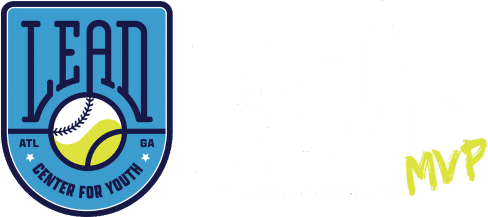In the world of youth travel baseball, I see an unsettling trend that frustrates me—parents are unknowingly giving up control of their children’s future when it comes to obtaining college scholarships, opportunities for professional baseball, and potentially even making it to the Major Leagues. Youth travel baseball is where the “best of the best” compete. These young athletes often score high in key areas such as attitude, awareness, adjustments, aptitude, athleticism, and aggressiveness, known as the 6 A’s:
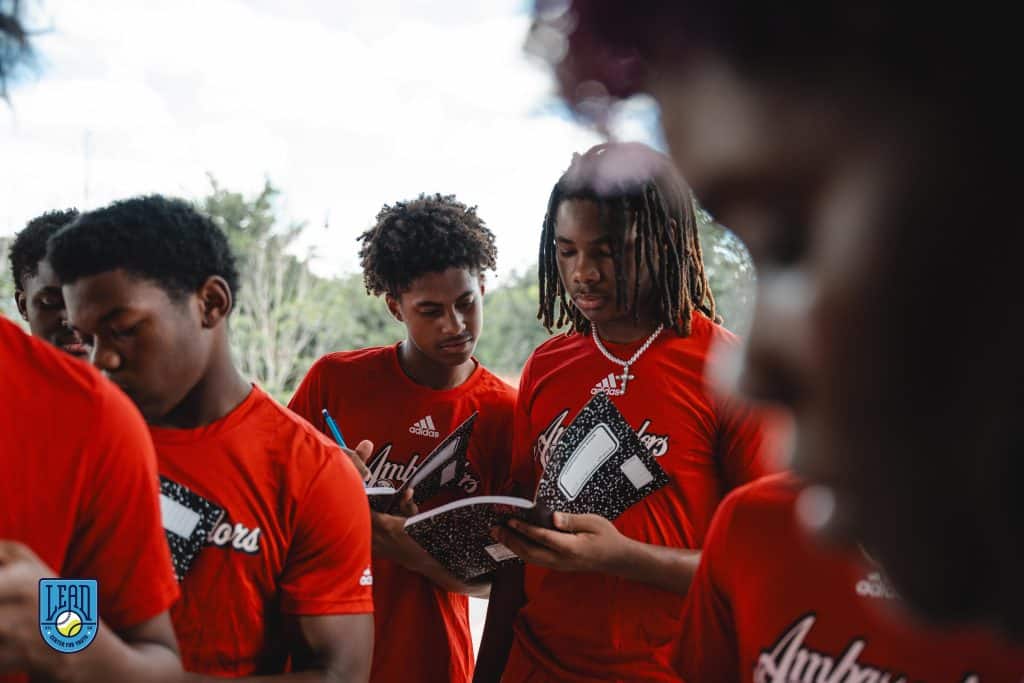
The 8 A's:
- Attitude: How a player acts.
- Awareness: How you think.
- Adjustments: How you respond.
- Adaptability: How you respond to uncertainty.
- Aptitude: How you correct.
- Athleticism: How you make things happen.
- Aggressiveness: How you compete.
- Assertiveness: How you take initiative.
They’ve got talent, toughness, tactical intelligence, and tenacity—key indicators that place them on the verge of obtaining a college baseball scholarship at the very least, and perhaps becoming a prospect in the Major League Baseball (MLB) draft at best. Yet, despite their potential, many parents are misled into thinking that simply playing a high volume of games is enough to secure their child’s future in baseball. It’s not.
Your Child is the Asset
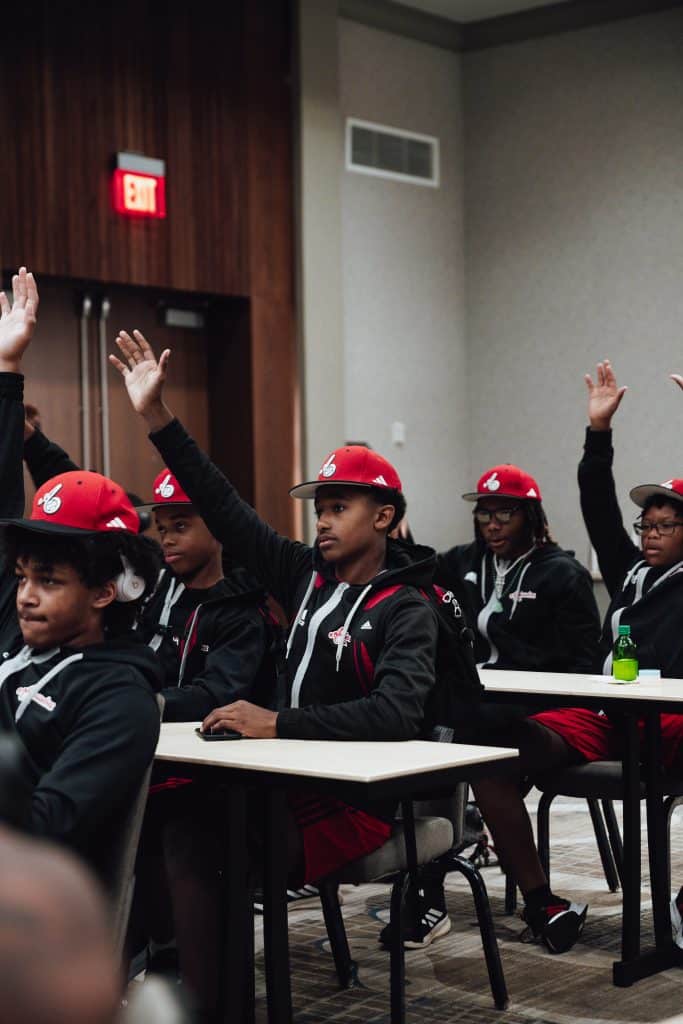
Parents need to understand one crucial truth: your child is the asset. And like any valuable asset, their development must be carefully nurtured and evaluated. In travel baseball, it’s not about playing as many games as possible. It’s about development. This is where I step in as a unique asset myself—as a professional scout and developmental coach, I evaluate young athletes to guide them on their best path. My role isn’t just about coaching—it’s about empowering young learners to achieve personal mastery through nurturing, deliberate training.
Talent, Habits, & Skills
To truly understand this path, you have to know the difference between talent, habits, and skills:
- Talent is what you do well.
- Habits are what you do well repeatedly, without thought. Habits are built through consistent practice.
- Skill is what you do well repeatedly without thought, under stress. Skills are developed through focused training and refined under pressure situations.
In travel baseball, players often fall into the trap of playing game after game, thinking it will sharpen their skills. However, it’s not just about accumulating games—it’s about practicing to build habits and training to develop skills. Practice helps build repetition, but training under stress (such as facing live pitching in simulated practice) is what makes the difference.
Playing Games vs Performing
One key distinction that parents and players need to understand is the difference between playing games and performing. When your child is playing games, they are testing out what they’ve been working on in practice, where they’ve been building habits. Playing games is essential for learning and applying the skills they’ve developed in practice.
However, performance is consequential. Performance happens when your child is in front of scouts, and decisions are being made about their future. You can’t simply practice to perform; you have to train to perform. Performance under pressure requires not just physical skill but also mental preparation. That’s why training for performance is key.
There are times when your child needs to play games to learn, but there are also times when they need to perform to win. Knowing the difference—and training for the latter—can make all the difference in whether your child stands out when it matters most.
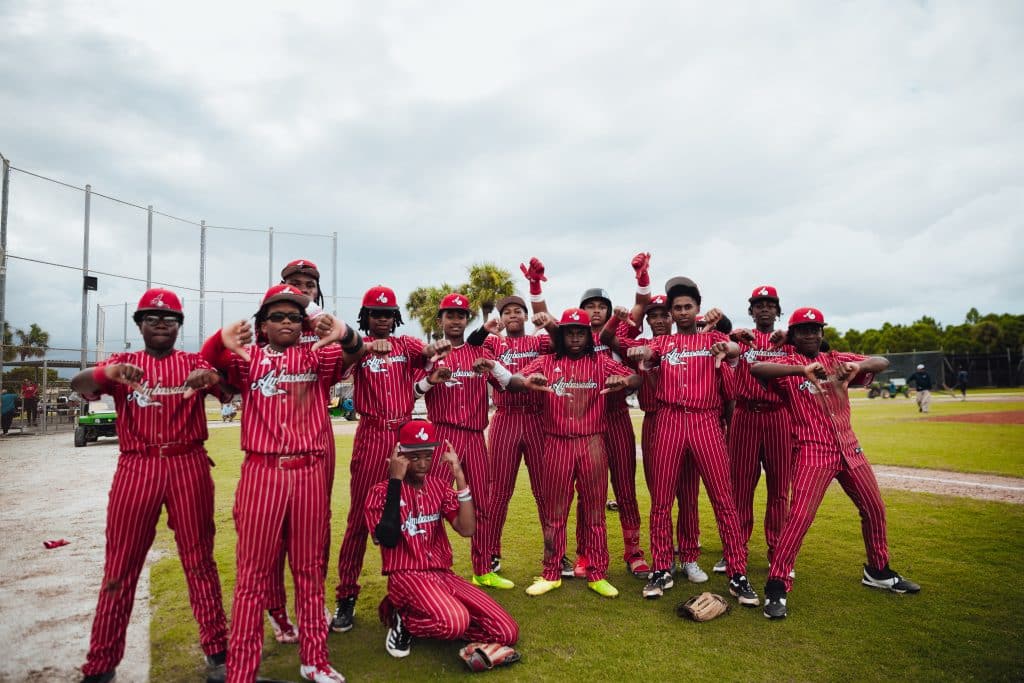
Too many games, too little development
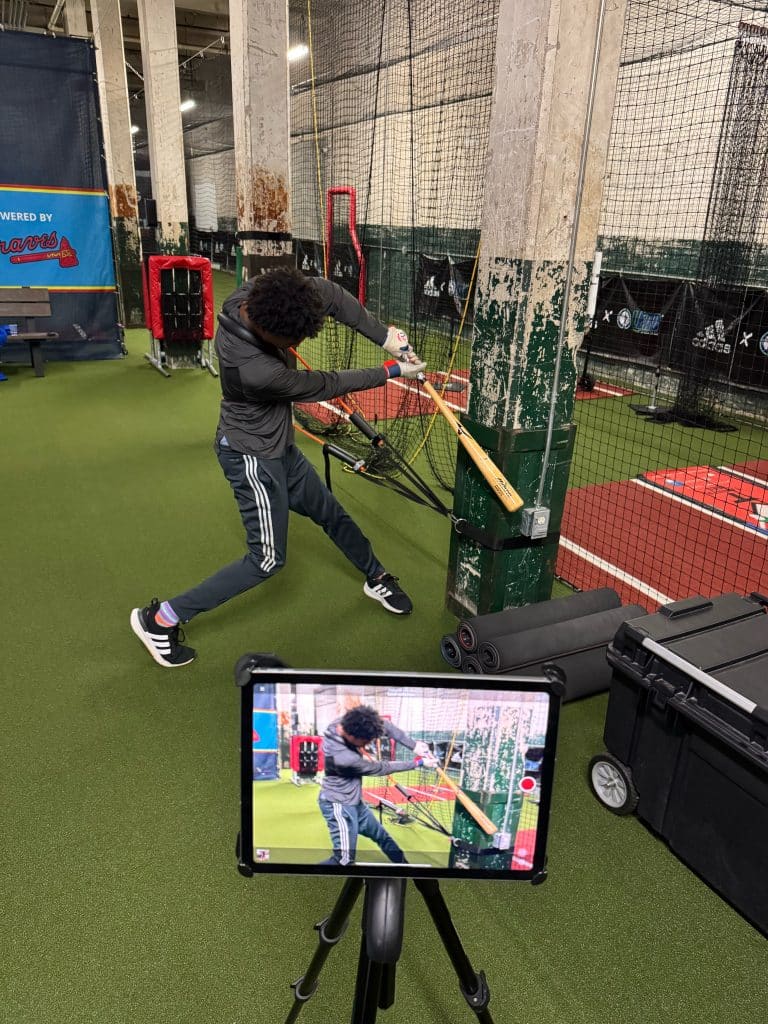
Kids are playing close to 100 or more games per year, and that’s not necessarily a good thing. Let’s break it down. You have auditory learners, visual learners, and kinesthetic learners. Kinesthetic learners don’t need to play that many games to improve—they learn best by doing, but overdoing it leads to burnout. Playing too many games, especially without proper strength training, can wear their bodies down, increasing the risk of injury.
Here’s the reality: to remain competitive as an elite hitter, you need about 200 at-bats per year. That doesn’t mean 200 game at-bats. Simulated practice—facing high-level pitchers, with a catcher present—can provide those reps. You need quality at-bats, not quantity, with at least 100 of those being against top-level pitching that challenges your ability. The real secret to development isn’t traveling across the country to play endless games—it’s deliberate practice against challenging competition.
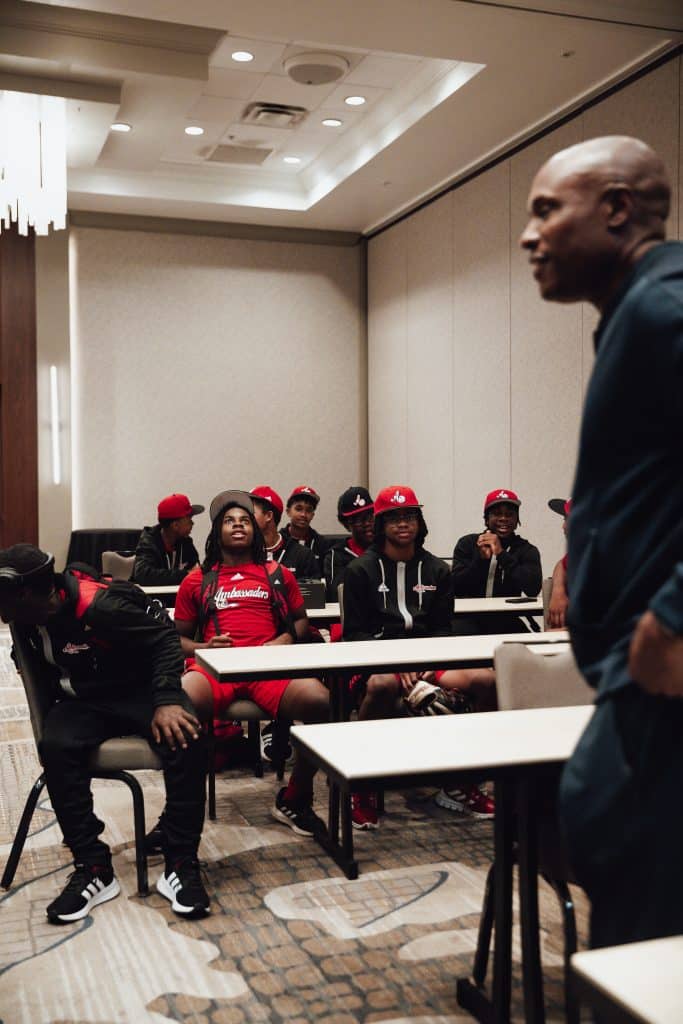
Three “Strikeout” Pitches: What Parents Need to Stop Doing
Stop relying on games alone for development. Games are great for developing baseball IQ, but excessive games can lead to physical burnout without improving core skills.
Stop spending money and time on travel ball without a scouting evaluation. Your child needs a clear developmental path, which comes from professional evaluation, not just games. Be intentional, not random, in their development.
Stop overlooking rest and multi-sport participation. Rest is essential, and sometimes the best way to develop athleticism is through other sports that build complementary skills. Don’t fall into the trap of year-round baseball without proper balance.
Three “Home Run” Swings: What Parents Should Be Doing
Invest in professional scouting evaluations. A scout can give you a realistic picture of where your child stands and what they need to focus on to reach the next level. Development starts with knowledge.
Focus on building habits and skills, not just talent. Encourage deliberate practice and training under stress. Make sure your child is strengthening their body and mind through quality reps, not just accumulating games.
Advocate for balance. Encourage your child to get proper rest, have a strong diet, and work with a strength coach. If they’re not resting or cross-training, they’re risking burnout and injury, which could derail their entire future.
9-Inning Checklist for Parents in Youth Travel Baseball
To help parents take control of their child’s development in the youth travel baseball market, here’s a 9-inning checklist to guide you through the essential steps. Just like in a baseball game, each inning represents a crucial step toward ensuring your child’s success and well-being. Follow these steps in sequence for the best outcome.
1st Inning: Identify SMART Goals
Before anything else, sit down with your child and have a conversation about their goals in baseball. Make sure these goals are SMART:
- Specific: Clearly define what they want to achieve (e.g., earn a college scholarship).
- Measurable: Track their progress (e.g., increase batting average by 20 points). To explore effective measurement resources, I will be touring and experiencing the Curve Test Center to evaluate if it’s a viable option for tracking performance. Learn more about it here: Curve Test Center
- Attainable: Ensure the goal is realistic based on their current skills and level.
- Relevant: Align the goal with their long-term ambitions (e.g., college or pro ball).
- Time-Sensitive: Set a deadline for achieving the goal (e.g., by the end of the season).
2nd Inning: Get a Professional Scouting Evaluation
This is critical. Have your child evaluated by a qualified scout who can assess their strengths, weaknesses, and potential. This gives you a roadmap for their development, rather than relying on guesswork or assumptions.
This is critical. Have your child evaluated by a qualified scout like Coach C.J. Stewart, former Cincinnati Reds scout and scout for Diamond Directors Sports Management Group who can assess their strengths, weaknesses, and potential. This gives you a roadmap for their development, rather than relying on guesswork or assumptions. Contact Coach C.J. to schedule a scouting assessment at askcj@diamonddirectors.com.
3rd Inning: Create a Development Plan
Based on the scouting evaluation, work with a coach to build a structured development plan that focuses on the areas where your child needs the most growth. This should include both physical and mental development, with a mix of practice and training under stress.
4th Inning: Prioritize Quality Over Quantity
Limit the number of games your child plays each year, focusing on those that offer high-level competition. Make sure they are getting at least 200 quality at-bats per year, with at least 100 of those against pitching that challenges their current ability.
5th Inning: Invest in Strength Training and Conditioning
Proper physical conditioning is key to avoiding injuries and staying strong throughout the season. Work with a strength coach who specializes in training athletes to maintain their health and prevent burnout.
6th Inning: Balance Rest and Recovery and Conditioning
Ensure that your child gets adequate rest, both mentally and physically. Rest days and recovery are just as important as training days. Overplaying can lead to physical and mental fatigue, which could negatively impact performance in the long run.
7th Inning: Develop Baseball IQ
Encourage your child to study the game beyond just playing it. Baseball IQ is about understanding the game at a deeper level—strategy, positioning, and decision-making. Watching games, breaking down plays, and learning from professionals can help sharpen their mental edge.
8th Inning: Incorporate Multi-Sport Participation
Consider encouraging your child to participate in other sports during the off-season. This helps develop overall athleticism, reduces the risk of burnout, and can improve skills like hand-eye coordination, footwork, and endurance.
9th Inning: Advocate for Your Child’s Best Interests
Be their biggest advocate. Whether it’s communicating with coaches, seeking additional resources, or ensuring they’re not overworked, stay involved and informed. Protect their future by making decisions that prioritize their long-term success, not short-term gains.
9-Inning Checklist of Questions for Parents to Ask Travel Ball Coaches
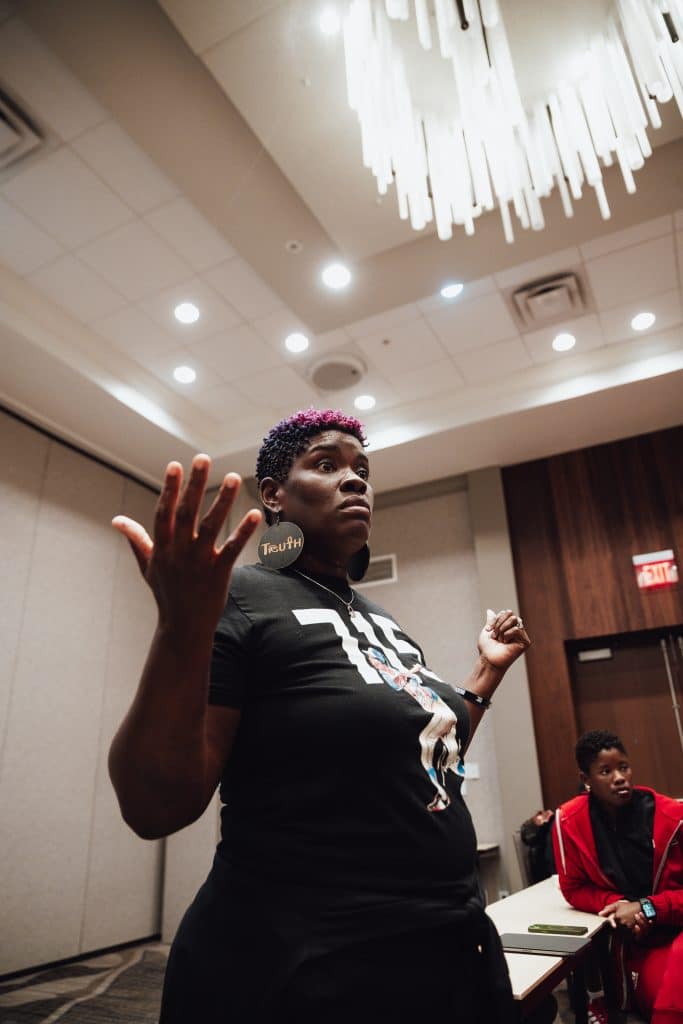
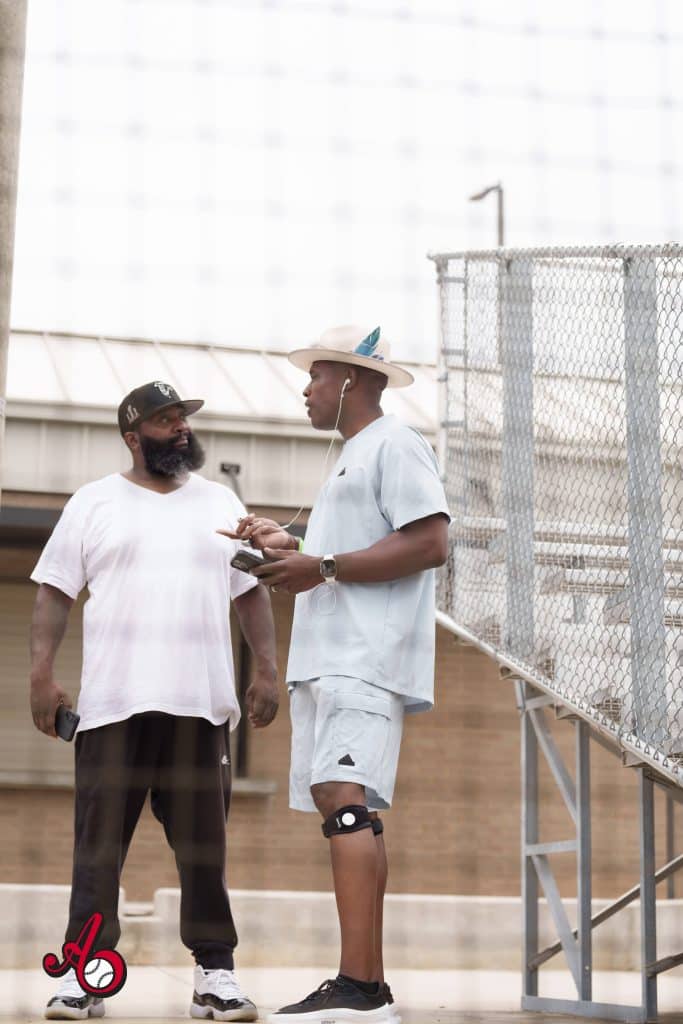
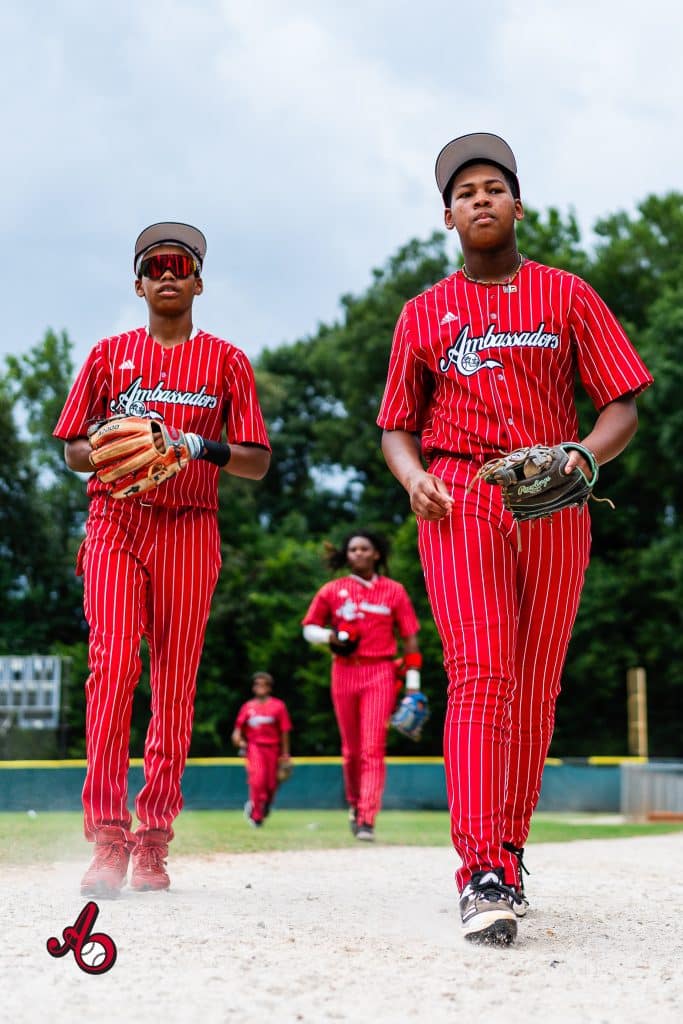
To ensure your child’s travel baseball coach is truly equipped to help them achieve their goals—whether that’s obtaining a college scholarship or being positioned for the MLB draft—parents need to ask the right questions. These questions can help determine if the coach is focused on proper development, avoiding burnout, and making efficient use of time, energy, and money.
Here are 9 innings of questions parents should ask:
1st Inning: What is your development philosophy?
Why ask this? You want to know if the coach prioritizes player development over just winning games. Look for a philosophy that balances skill-building, mental toughness, and performance training.
2nd Inning: How do you tailor your approach to different players’ needs?
Why ask this? Every player has unique strengths and weaknesses. A good coach should adjust their methods based on the individual needs of each player rather than a one-size-fits-all approach.
3rd Inning: What is your experience in helping players obtain college scholarships or prepare for the MLB draft?
Why ask this? It’s important to know if the coach has a track record of guiding players to the next level, whether that’s college or professional baseball.
4th Inning: How do you balance game play with skill development and rest?
Why ask this? Playing too many games can lead to burnout and injury. Coaches should understand the importance of skill-building in practice and emphasize recovery.
5th Inning: What role do you believe strength and conditioning play in player development?
Why ask this? Strength and conditioning are critical for avoiding injury and building the durability needed to succeed at higher levels. Ensure the coach incorporates this into the training plan or partners with strength coaches.
6th Inning: How do you measure progress, and how often do you evaluate players?
Why ask this? A good coach tracks player progress through regular evaluations and uses data (like batting averages, pitching velocity, or other metrics) to show improvement. Ask how they will assess your child’s growth.
7th Inning: What do you do to prepare players for performing under pressure (in front of scouts, etc.)?
Why ask this? Performing under pressure is a critical skill. The coach should have strategies for helping players get comfortable in high-stakes situations, like playing in front of scouts or in key tournaments.
8th Inning: How do you ensure players maintain balance between baseball, academics, and other aspects of life?
Why ask this? Baseball should not take over your child’s life, especially if it affects their academics or well-being. The coach should understand the importance of balance and promote a well-rounded development approach.
9th Inning: Do you collaborate with other professionals, such as scouts, college coaches, or trainers, to help players achieve their goals?
Why ask this? It’s essential that the coach recognizes they can’t do everything alone. They should be willing to collaborate with other experts to give your child the best chance for success, whether that’s through scouting evaluations, strength training, or college recruiting.
Glossary of Key Terms
Here is a glossary of important terms and concepts related to youth travel baseball, development, and coaching. These definitions are designed to help clarify essential principles and guide parents in understanding the process of fostering success in their child’s baseball journey
Development Terms
- Development: The deliberate effort to value and empower learners to obtain personal mastery and excellence through nurturing training.
- Philosophy: A structured system of thought that typically involves mission, vision, and values. In the context of coaching, it refers to the guiding principles that inform a coach’s approach to developing athletes.
Activity and Performance Terms
- Participate: Merely being part of a team and being on the field without clear, defined goals for growth. Participation lacks the intention and direction needed for true development.
- Play: Engaging in games to apply what has been learned in practice. Playing helps reinforce baseball IQ, strategy, and habits, allowing players to learn in real-game situations.
- Perform: Performing happens in high-stakes situations where results matter, such as in front of scouts or in crucial games. It’s about executing skills under pressure, where the outcome is consequential.
Strategy and Support Terms
- Strength Training and Conditioning: A crucial part of development that focuses on improving physical health and athletic performance. It helps prevent injuries and ensures a player can meet the physical demands of high-level play.
- Evaluation: The process of assessing a player’s current abilities, strengths, and areas for improvement. Evaluations by scouts or coaches provide critical insights for guiding development and setting goals.
Learning & Skill Building Terms
- Talent: What you do well naturally, without needing much guidance or instruction.
- Habit: What you do well repeatedly without thought. Habits are built through consistent practice.|
- Skill: What you do well repeatedly without thought, under stress. Skills are developed through focused training and refined under pressure situations.
- Practice: The deliberate activity where players try new things to discover what works and what doesn’t. It is where habits are built and refined. Practice focuses on improvement without the pressure of performance.
Health and Well-Being Terms
- Rest: The intentional period of time spent recovering physically and mentally. Rest is essential to avoid burnout, allow the body to heal, and maintain peak performance over time.
- Protection: The proactive steps taken to safeguard a player’s physical and mental health. This includes managing their workload, ensuring proper nutrition, rest, and injury prevention.
- Advocacy: The act of parents and coaches ensuring that the best interests of the player are being served. This includes advocating for the player’s well-being, development, and future opportunities, both on and off the field.
